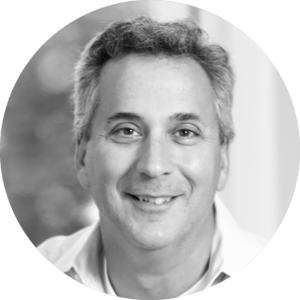Massive change is happening in business, in technology, in politics and in social norms. A new world is being born. Some react to this with pessimism or fear. Others are optimists who believe we’re on the cusp of a much better world. Still others, and quite possibly the largest group, may be confused by the changes and aren’t sure how to react.
I’m with the optimists: I believe that the future will be better.
Why? First, because many of our most serious challenges aren’t new. They’re just the latest manifestations of old problems that we’re finally able to see – and address. And second, I believe the future will be better because in artificial intelligence I see the opportunity for us to rise above what feels like disruption and see a bigger picture.

The thing to keep in mind is that no one considered that scenario a problem. It was just reality.
- What do you mean, people couldn’t integrate data within their own company?
- What do you mean, retailers lost a trillion dollars a year because products were out of stock?
- What do you mean, 30% to 40% of the food we produced was wasted?
- Companies can’t integrate data easily because it’s trapped in different systems and formats – essentially, different languages. Now imagine “multilingual” AI that can read virtually any kind of data – and not only understand it but summarize it and draw conclusions from it.
- The second problem is related to the first: out-of-stock conditions that squander revenue opportunity and erode customer satisfaction are a symptom of the siloed data problem. If it’s hard to comprehend all the data in a company, think how hard it is across an entire supply chain. But the same AI technology that can help a company with its internal data problem can also look at data (even incomplete data) from a supply chain; match it to external data about markets and locations; and create highly accurate models of future demand.
- The flip side of out of stock is overstock – when companies produce and ship goods that will never be sold. This problem is especially acute in the food industry because food is perishable. As I mentioned above, a staggering amount of food is thrown away because it becomes inedible before it’s sold. The same demand-modeling AI that can drastically reduce out of stock problems can do the same for overstock problems. Imagine the benefits to society and the environment if all that wasted food was never produced and transported in the first place – or if it was routed directly to people in need.
The key to the future we all want – and that r4 is starting to make real – is new thinking. Look at the world with fresh eyes. See problems we’ve taken for granted that can now be solved. Don’t just focus on point solutions; think holistically because, more than ever, you can.
My only note of caution: remember that the world keeps moving faster. That too requires new thinking, and specifically thinking about risk. We tend to worry about the risks inherent in actions – but today, the bigger risk is inaction. Your customers and competitors aren’t standing still. The longer you wait, the harder it will be to catch up.
So whatever your field, it’s time to make it better. Let’s get started.

